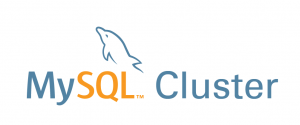 If you missed the recent MySQL Cluster 7.3 GA webinar then the replay is now available here.
If you missed the recent MySQL Cluster 7.3 GA webinar then the replay is now available here.
In the webinar replay you can learn how MySQL Cluster 7.3 has delivered key features enabling the latest generation of web and mobile services to take advantage of high scalability on commodity hardware, SQL and NoSQL interfaces and 99.999% availability; these include:
- Support for Foreign Key constraints – implemented to be as compatibile with InnoDB as possible
- NoSQL JavaScript connector allowing native access from node.js applications to MySQL Cluster, bypassing the SQL layer
- Browser-based Auto-Installer for fast configuration of production-grade clusters
- Connection Thread Scalability for enhancing performance of each connection to the cluster by up to 8x
- MySQL Server 5.6 support for improved performance and replication robustness
If you missed the live webinar then you missed your chance to ask your own questions (though feel free to post them as comments on this post) but here are some of the highlights from the Q&A:
- How do the NoSQL APIs get the data – are there any relational joins behind the scenes to query the DB? It depends on the API – for example, Memcached and Node.js APIs act on a single table but others do allow joins – this is something that’s enabled by the NDB API (a C++ client library that encapsulates the ‘wire’ protocol to access the Data Nodes in order to read or write data).
- I have an existing Joomdle based application. Would it work if I converted the tables to MySQL Cluster? If I understand correctly, you’re wondering whether an existing application that’s coded to work with InnoDB would now work with MySQL Cluster. We hope that we’ve got as close to that as possible but there’s always the possibility that some tweaks to the app or middleware will need to be made. I can’t comment specifically on Joomdle.
- Is it possible to use the JavaScript API directly from the client (e.g. browser) directly rather than from server code running in Node.js? Not at present but would love to hear feedback on whether this is a common requirement and what the use cases would be.